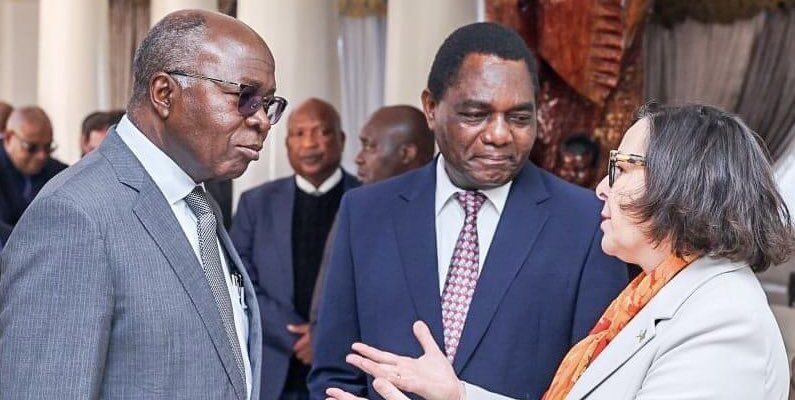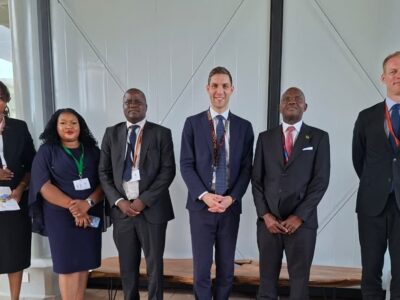The International Monetary Fund (IMF) has reached a staff-level agreement with Zambia, paving the way for a US$185.5 million disbursement under the Extended Credit Facility (ECF) loan program.
The IMF announced the staff-level agreement on Monday evening for the fourth review of Zambia’s loan programme, following an IMF mission to Zambia from October 2 to 15 and additional discussions at the IMF and World Bank annual meetings in Washington, D.C.
According to the IMF, the disbursement would proceed pending approval from the fund’s management and executive board.
“We are pleased to announce that the Zambian authorities and the IMF team have reached a staff-level agreement on economic policies and reforms for the fourth review of Zambia’s ECF arrangement,” said Vera Martin, who led the IMF delegation to Zambia.
Read more: Zambia seeks new IMF loan under sustainability terms, eyes debt-for-nature swap
Martin highlighted that Zambia’s medium-term economic outlook remained favorable, but significant risks persist.
Growth for 2025 is now projected at 6.2 percent, revised slightly downward from an earlier forecast of 6.6 percent, due to expectations that electricity production may not fully recover.
“This outlook is bolstered by a recovery in agricultural and mining production and the completion of the debt restructuring and is underpinned by prudent policies and ongoing reforms,” Martin said.
“Inflation is expected to converge to the target band by end-2025, given strong base effects. The external position is projected to strengthen on account of higher exports and FDI, supporting reserve accumulation.”
However, the outlook for 2024 has worsened, with the IMF now forecasting real GDP growth at 1.2 percent, down from an earlier projection of 2.3 percent.
The downward revision is primarily due to electricity shortages that have significantly impacted economic activity in Zambia.
The IMF’s support through the ECF arrangement has been crucial for Zambia as it navigated economic challenges, including debt restructuring efforts and a recovery from adverse conditions in key sectors like agriculture and mining.
This fourth review of the ECF arrangement represents another critical step for Zambia as it seeks stability and long-term growth.
WARNING! All rights reserved. This material, and other digital content on this website, may not be reproduced, published, broadcast, rewritten or redistributed in whole or in part without prior express permission from ZAMBIA MONITOR.













Comments